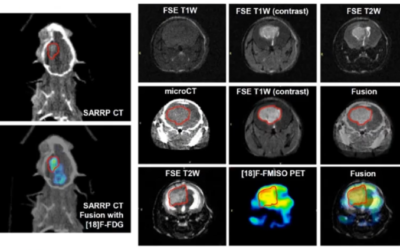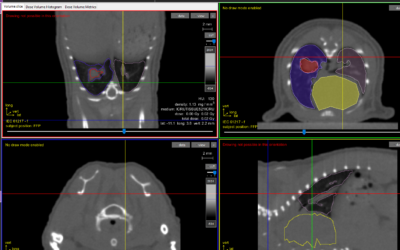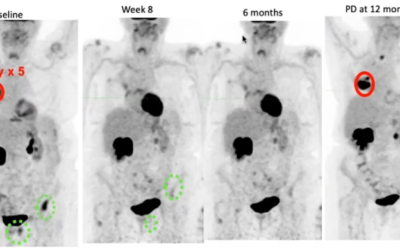Outcomes for poor-risk localized prostate cancers treated with radiation are still insufficient. Targeting the “non-oncogene” addiction or stress response machinery is an appealing strategy for cancer therapeutics. Heat-shock-protein-90 (Hsp90), an integral member of this machinery, is a molecular chaperone required for energy-driven stabilization and selective degradation of misfolded “client” proteins, that is commonly overexpressed in tumor cells. Hsp90 client proteins include critical components of pathways implicated in prostate cancer cell survival and radioresistance, such as androgen receptor signaling and the PI3K-Akt-mTOR pathway. We examined the effects of a novel non-geldanamycin Hsp90 inhibitor, AUY922, combined with radiation (RT) on two prostate cancer cell lines, Myc-CaP and PC3, using in vitro assays for clonogenic survival, apoptosis, cell cycle distribution, γ-H2AX foci kinetics and client protein expression in pathways important for prostate cancer survival and radioresistance. We then evaluated tumor growth delay and effects of the combined treatment (RT-AUY922) on the PI3K-Akt-mTOR and AR pathways in a hind-flank tumor graft model. We observed that AUY922 caused supra-additive radiosensitization in both cell lines at low nanomolar doses with enhancement ratios between 1.4-1.7 (p < 0.01). RT-AUY922 increased apoptotic cell death compared with either therapy alone, induced G 2-M arrest and produced marked changes in client protein expression. These results were confirmed in vivo, where RT-AUY922 combination therapy produced supra-additive tumor growth delay compared with either therapy by itself in Myc-CaP and PC3 tumor grafts (both p < 0.0001). Our data suggest that combined RT-AUY922 therapy exhibits promising activity against prostate cancer cells, which should be investigated in clinical studies.
Gandhi N, Wild AT, Chettiar ST, Aziz K, Kato Y, Gajula RP, Williams RD, Cades JA, Annadanam A, Song D, Zhang Y, Hales RK, Herman JM, Armour E, DeWeese TL, Schaeffer EM & Tran PT.
Download Paper
SARRP Research Spotlight: Dr. George Wilson
George Wilson, PhD, Chief, Radiation Biology, William Beaumont Hospital Radiation Biology focuses on translational research in the areas of new treatments, combined modalities, and stem cell biology. The group has a heavy emphasis on incorporating molecular,...






